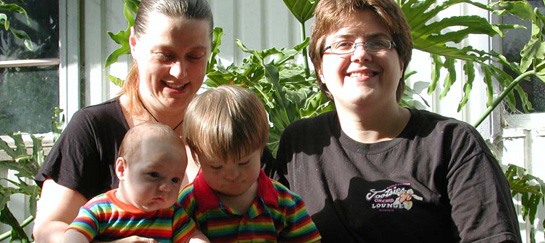Policy Impact Spotlight

Unequal Access Could Continue to Cost California’s Same-Sex Couples Their Health and Money
The White House has called for more equitable treatment of gay and lesbian couples, but without clear federal guidance on coverage expansions in health reform, employers’ decisions may be driven by discriminatory state laws. A recent BRITE Center study examining the effects of unequal access to health insurance for same-sex couples in California found that the exclusion of gay men and women from civil marriage, and the failure of domestic partnership benefits to provide insurance parity, contribute to why partnered lesbians and gay men are more than twice as likely to be uninsured.
Center researchers found that partnered gay men are less than half as likely as married heterosexual men to get employer-sponsored dependent coverage, and partnered lesbians have an even slimmer chance of getting dependent coverage compared to married heterosexual women. As a result of these much lower rates of employer-provided coverage, partnered lesbians and gay men are more than twice as likely to be uninsured as married heterosexuals.
An analysis of the California Health Benefits Survey suggests that more California employers are choosing to offer dependent coverage to domestic partners. However, it remains true that these benefits for domestic partners and same-sex spouses are not financially equivalent to those offered to heterosexual spouses as a result of the income tax discrimination imposed by federal law. Unlike heterosexual couples the federal and most state governments treat dependent benefits for domestic partners, civil-union spouses, and same-sex spouses as taxable earned income. This means that dependent coverage for same-sex partners is not equivalent in price to insurance provided for heterosexual married partners.
There are two concrete steps that policymakers can take to address these inequities:
- First, to address the disparities in coverage, federal agencies should clarify that group health plans would not lose their grandfathered status by expanding coverage to include domestic partners. With this clarification, employers might be more likely to broaden their definition of dependents.
- Second, to address in equities in the tax burden, policymakers should end the federal taxation of health insurance benefits for domestic partners and same-sex spouses.
Related Links
The Effects of Unequal Access to Health Insurance For Same-Sex Couples In California (pdf) (Health Affairs)



